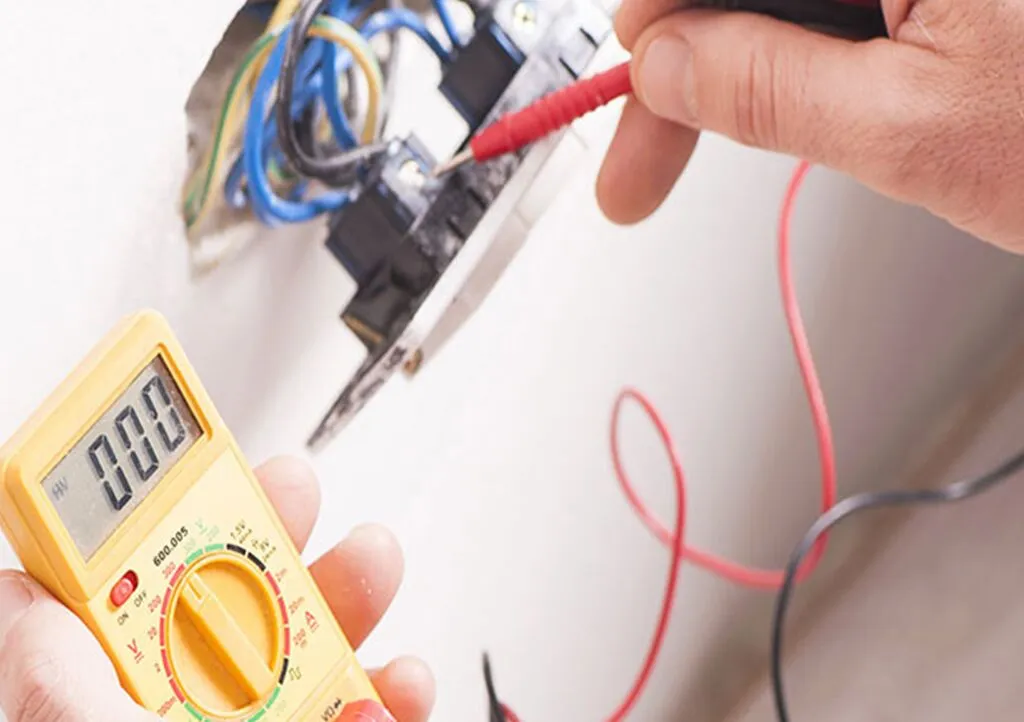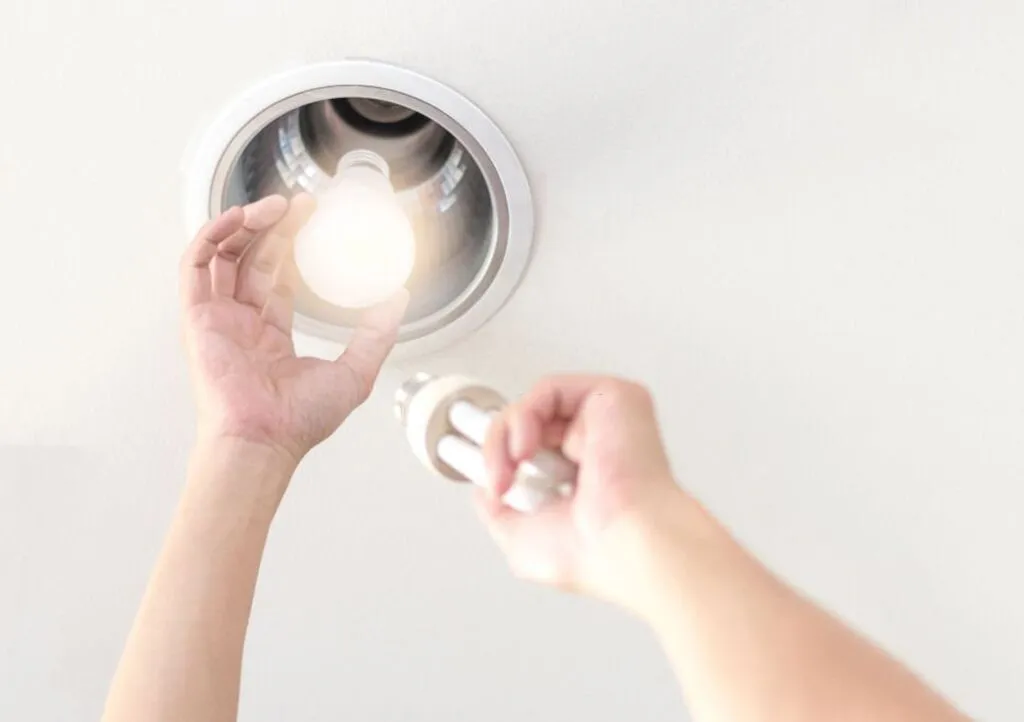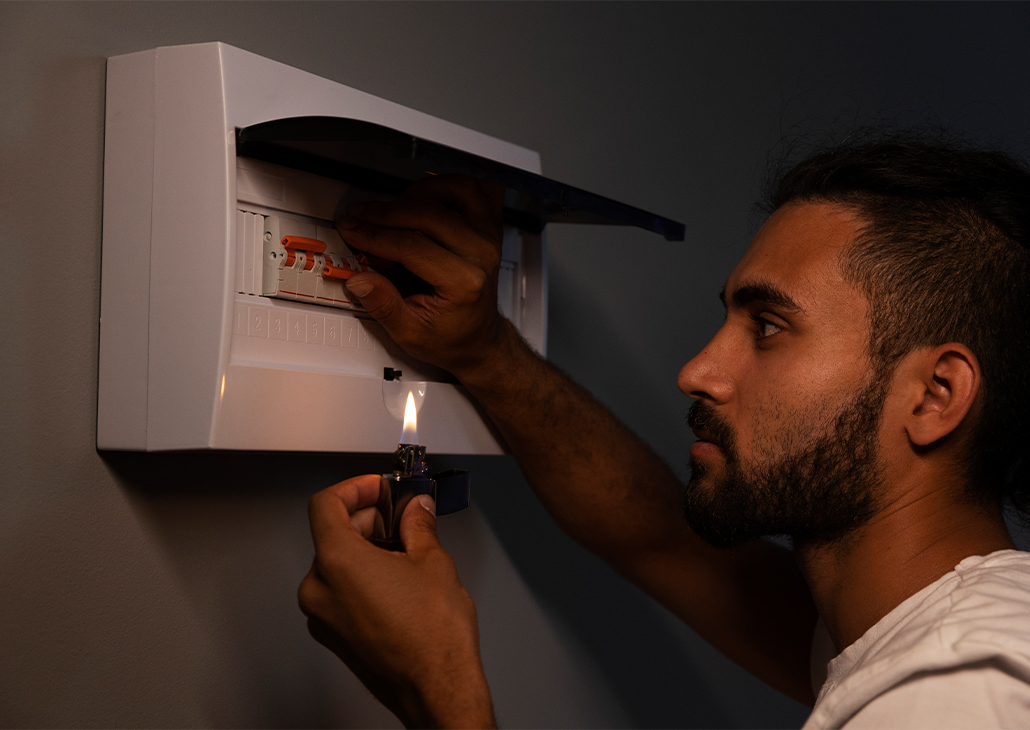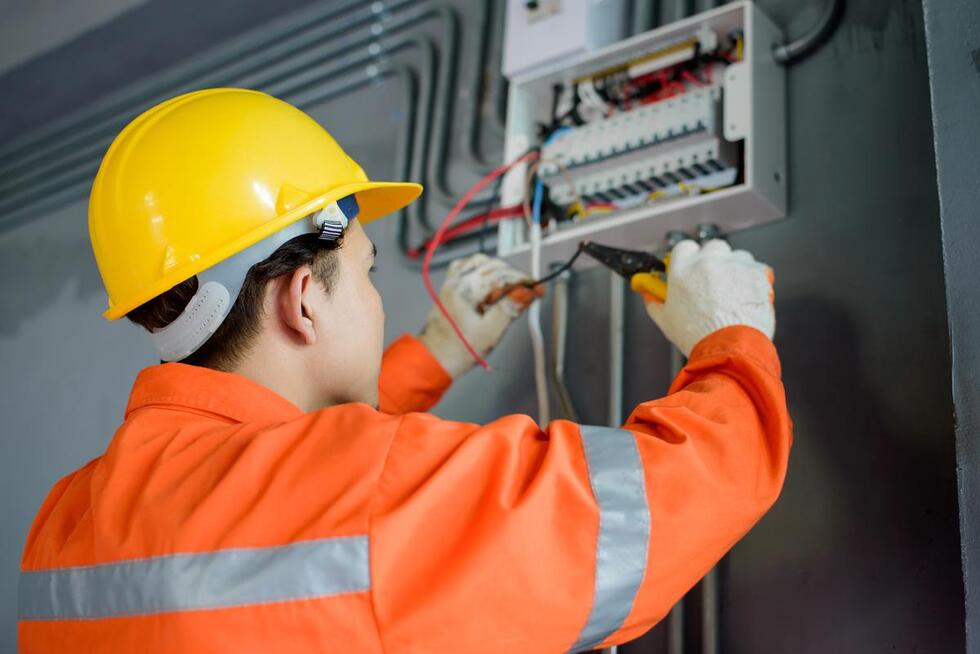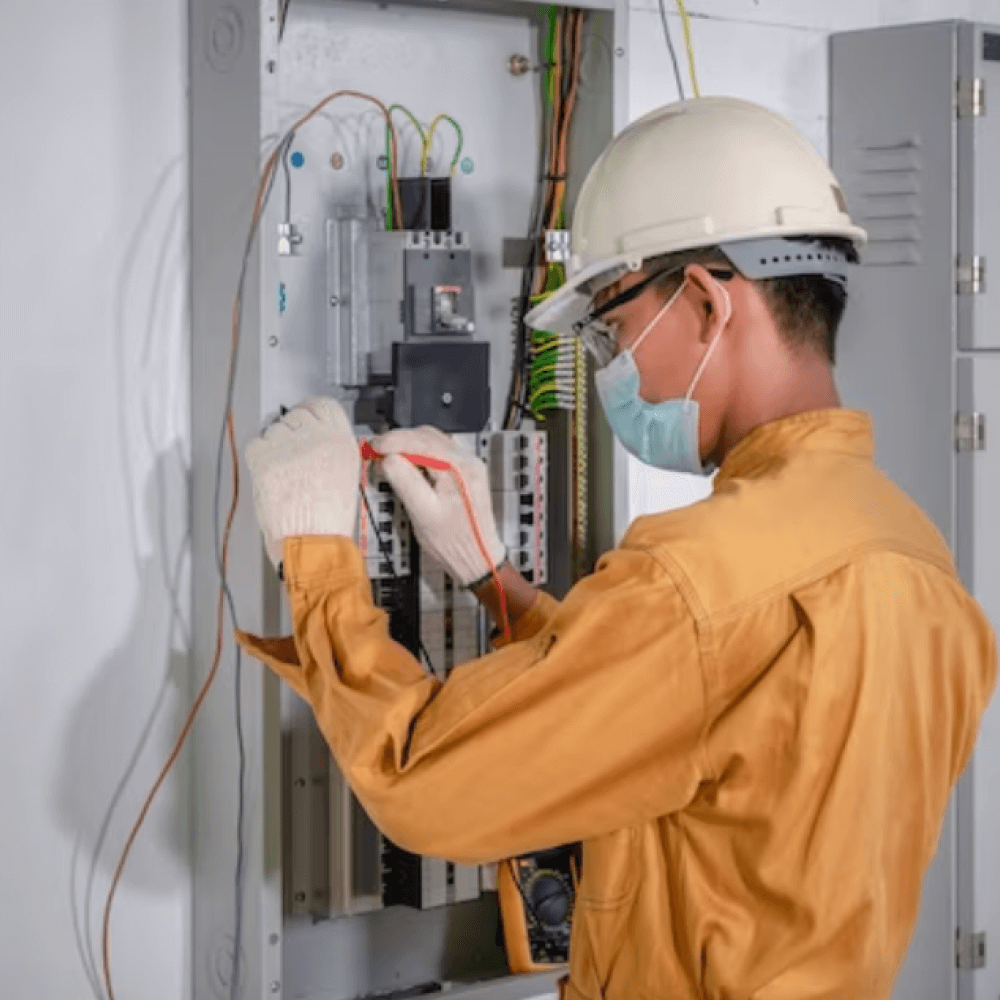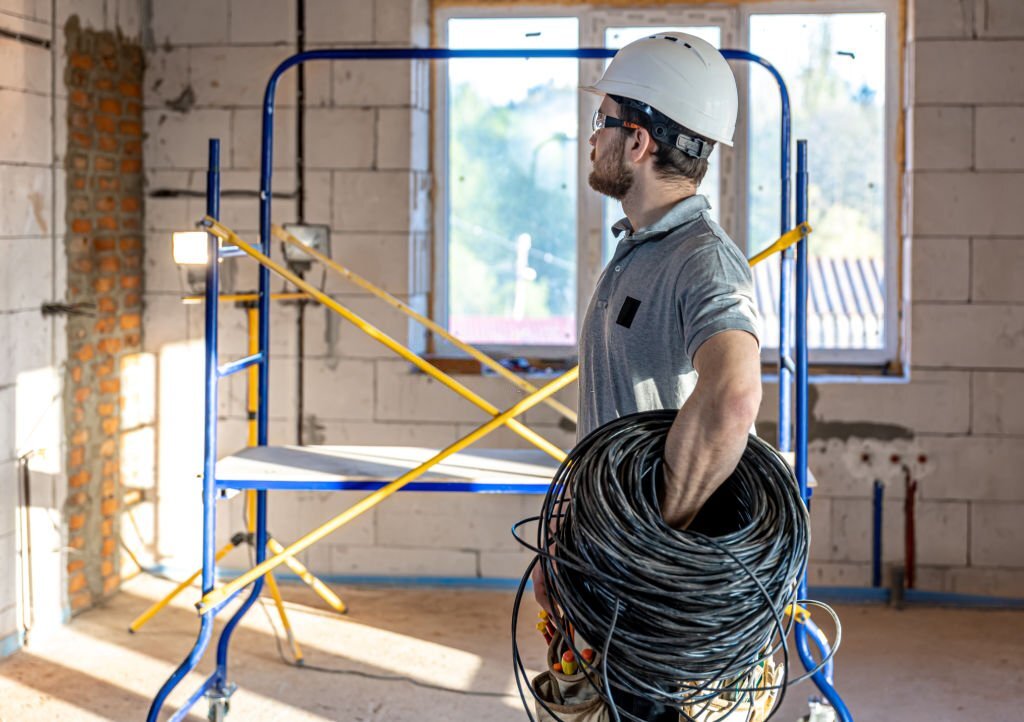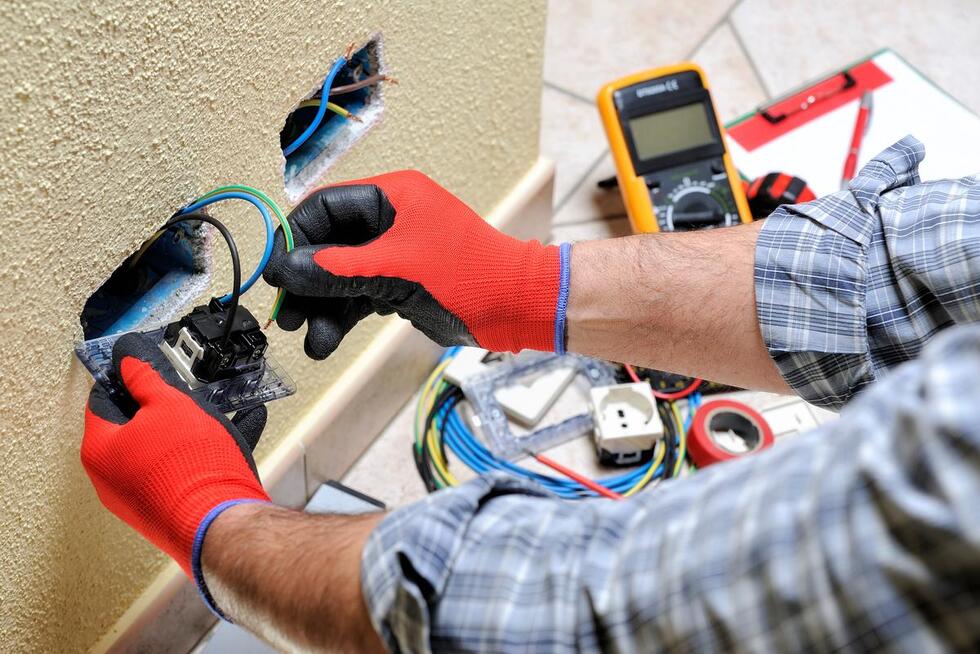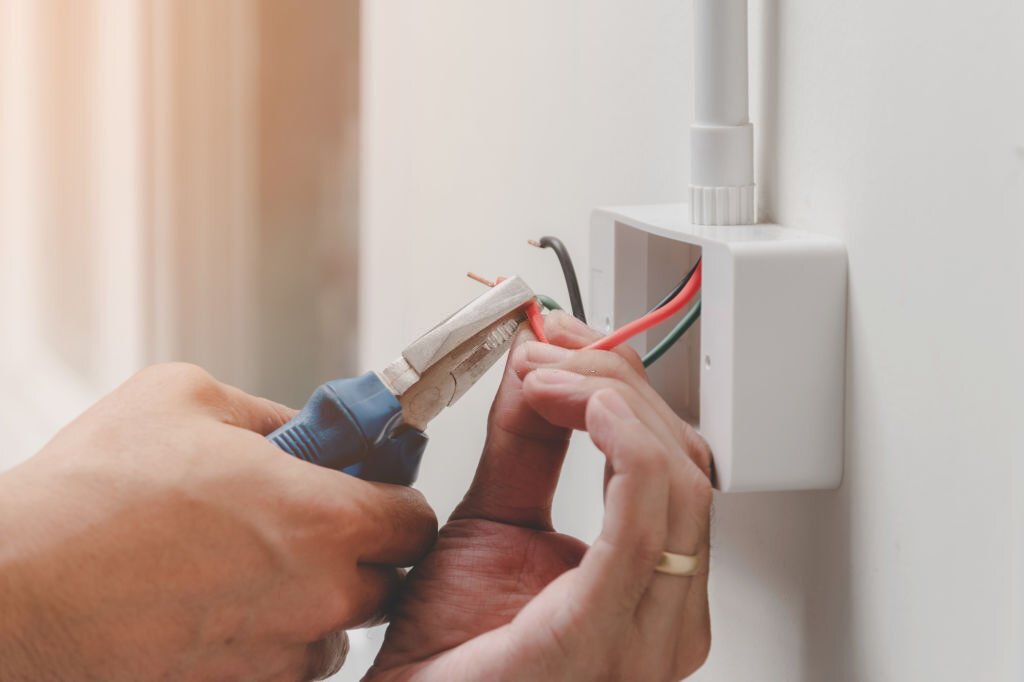Encountered a Electrical Power Trip At Home? A power trip is when there is an electric overload, causing the circuit breaker to trip and the power to go off. This can be a common occurrence in Singapore! One main reason why a power trip happens is because of the electrical circuit getting overloaded beyond the prescribed limit.
Professional, Reliable, Certified, Licensed electrician service to fix electrical problems. for a no-obligation consultation!
Electrical Power Trip – Power Restoration Service in Singapore
Do you encounter Frequent power trips? Circuit breaker keeps resetting? Is it due to faulty electrical appliance or worn wiring? Our electricians can help. Professional, Reliable, Certified, Licensed electrician service to fix electrical problems. for a no-obligation consultation!
Did you know that faulty electrical wiring is one of the leading causes of residential fires in Singapore? During a power trip in Singapore, it’s crucial to first identify the cause. Often, overloaded power sockets, electrical circuits or faulty electrical appliances are the primary culprits. If the power trip occurs in private residential premises or HDB flats, the first step should be to check the electrical panel and reset the tripped breaker.
Ensuring your home’s wiring is up to standard is crucial for safety and peace of mind. When it comes to electrical wiring and rewiring services in Singapore, quality workmanship is non-negotiable. From troubleshooting issues to complete rewiring projects, professionals in the field offer expertise you can trust. With a focus on safety, efficiency, and compliance with regulations, these services provide a reliable solution for your electrical needs.
-
Identify the Cause: Understanding common causes like overloaded circuits, short circuits, ground fault surges, and earth leakage faults can help pinpoint the reason behind electrical power trips.
-
Take Action: When a circuit breaker trips, investigate the issue by checking for overloaded circuits, short circuits, or ground fault surges, and reset the breaker if needed.
-
Prioritize Safety: After a power trip, ensure safety by testing your circuit breaker and following prevention tips to avoid future incidents.
-
Stay Informed: Knowing why circuit breakers trip and how to handle power trips can prevent electrical hazards and keep your home safe.
-
Act Promptly: Addressing power trips promptly can prevent damage to appliances, protect against electrical fires, and maintain a reliable electrical system.
-
Regular Maintenance: Conduct routine checks on your electrical system to prevent power trips and ensure the safety and efficiency of your home’s electrical setup.
Contact Elite Electricians for our emergency electrician service for your electrical safety!
Understanding why Power Trips happen
Electrical power trips can be a frustrating occurrence in any household or workplace. Understanding the causes and solutions for electrical power trips is crucial for maintaining a safe and functional environment. From overloaded circuits to faulty appliances, various factors can lead to these interruptions. By delving into the historical context of electrical systems and advancements, we gain insight into how modern-day power trips are managed.
Importance of Power Trips
Electrical power trips occur when there is an excessive electrical load on a circuit, leading to the activation of a protective device like a circuit breaker. These events are crucial in preventing electrical hazards such as electrical fires by cutting off the electricity flow.
Power trips play a vital role in safeguarding electrical systems from damage caused by overloading. When the current exceeds the circuit’s capacity, the trip unit within the breaker detects this anomaly and interrupts the power supply, averting potential disasters.
Identifying the root cause of a power trip is essential for maintaining electrical safety. By pinpointing the specific appliance or area causing the overload, individuals can take corrective actions to prevent future incidents and ensure the smooth functioning of their electrical needs.
Risks of Ignoring Power Trips
Ignoring frequent power trips can pose significant risks to both property and personal safety. Continuously resetting a tripped circuit without addressing the underlying issue can lead to overheating, sparking, or even electrical fires, endangering lives and property.
The failure to investigate and resolve power trips promptly can result in extensive damage to electrical systems and appliances. Over time, repeated overloads can weaken circuits, increasing the likelihood of coastal power systems failures and costly repairs.
Effective troubleshooting of power trips involves a systematic approach to isolate and rectify the problem. By unplugging devices, redistributing loads, and checking for damaged wires or connections, individuals can identify and resolve issues that trigger power trips, ensuring uninterrupted electricity supply.
Troubleshooting Power Trips
When faced with a power trip, individuals should first locate the tripped breaker in the electrical panel. By switching it off and then back on, they can reset the circuit and restore power. However, if the breaker continues to trip repeatedly, it indicates an underlying issue that requires further investigation.
To troubleshoot persistent power trips, individuals should unplug all devices connected to the affected circuit and gradually reconnect them one by one while monitoring for any tripping. This process helps identify the specific appliance or equipment causing the overload, enabling targeted solutions to be implemented. Professional, Reliable, Certified, Licensed electrician service to fix electrical problems. for a no-obligation consultation!
Common Causes of Power Trips
Overloads
Overloads occur when too many appliances are plugged into a single circuit, surpassing its capacity. This excess electrical load triggers the circuit breaker to trip, cutting off power to prevent overheating and potential fires. To avoid overloads, distribute appliances across multiple circuits and use power strips with built-in overload protection.
Environmental Factors Environmental factors, such as lightning strikes or power surges caused by storms, can lead to sudden power trips. Lightning can induce power surges through utility lines, affecting electronic devices and causing circuit interruptions. Installing surge protectors can safeguard against these unpredictable events.
Ground Faults Ground faults happen when an exposed wire comes into contact with a conductive surface, creating a path for electricity to flow directly to the ground. This abnormal current flow prompts the circuit breaker to trip, preventing electric shocks and potential hazards. Regularly inspecting wiring for signs of damage or wear can help identify and address ground faults promptly.
Short Circuits
Short circuits occur when hot and neutral wires come into direct contact, bypassing the intended electrical pathway. This results in a sudden surge of current, triggering the circuit breaker to trip for safety reasons. Avoid using damaged cords or outlets to prevent short circuits and ensure proper insulation in electrical installations.
Faulty Appliances Faulty appliances, such as frayed cords or malfunctioning devices, can cause power trips by creating electrical imbalances within the circuit. These imbalances trigger the circuit breaker to cut off power, preventing potential electrical fires or equipment damage. Regularly checking appliances for defects and replacing worn-out components can mitigate this risk.
Aging Electrical Systems The aging of electrical systems can compromise their efficiency and reliability, leading to frequent power trips. Over time, components like wiring and circuit breakers may deteriorate, increasing the likelihood of disruptions. Upgrading outdated systems and conducting periodic inspections can enhance the overall safety and performance of electrical installations.
Whether it is Power failure recovery or emergency short circuit recovery services, you can be assured of fast and professional response because we are the #1 recommended top 24 hour Electrician in Singapore. We handle power trip, power failure, electrical trip, electrical outage and many more.
Importance of Regular Maintenance
Regular maintenance is crucial in preventing power trips by addressing potential issues before they escalate. Scheduled inspections can uncover hidden problems like loose connections or worn-out components that could trigger circuit interruptions. Creating a maintenance schedule and adhering to it can significantly reduce the occurrence of power trips.
When electrical issues strike, you need a reliable SG electrician for emergency electrical service. Don’t let power outages or faulty wiring disrupt your day – trust our skilled electrician professionals to swiftly resolve any electrical emergencies. Whether it’s a sudden blackout or a sparking outlet, our electrical emergency team is ready to tackle the problem promptly and efficiently.
Warning Signs of Electrical Dangers
Professional, Reliable, Certified, Licensed electrician service to fix electrical problems. for a no-obligation consultation!
Heating Issues: An overloaded circuit situation often manifests through heat buildup in outlets or electrical panels. Feeling warmth or noticing discoloration around outlets indicates a potential circuit overloading issue.
Burning Smells: A distinct burning odor is a clear indication of an overheating circuit, signaling immediate attention is required to prevent further damage or safety hazards.
Tripping Breakers: Frequent circuit issues like tripping breakers or blown fuses are strong indicators of an overloaded circuit. These occurrences are protective measures that prevent electrical fires.
Consequences
Ignoring warnings of an overloaded circuit can have severe consequences, including electrical fires and damage to appliances. Continuously running overloaded circuits can lead to permanent damage to the home’s electrical system, necessitating costly repairs.
In the worst-case scenario, neglecting circuit overloading warnings can result in life-threatening situations due to electrical fires. It is crucial to address these issues promptly to ensure the safety of occupants and property.
Redistributing Electrical Loads
To avoid circuit overloading, homeowners should distribute electrical loads evenly across different circuits. This practice prevents any single circuit from carrying too much current, reducing the risk of overloads and subsequent hazards.
Installing additional outlets in areas prone to overloaded circuits can help disperse the load effectively. By spreading out the usage of appliances and electronics, households can maintain a balanced electrical system and mitigate the risks associated with circuit overloads.
Reasons Circuit Breakers Trip
Overloads
Overloads occur when too many devices are plugged into a single circuit, surpassing its amperage limit. This results in excessive heat buildup, triggering the circuit breaker to trip and prevent electrical fires. To prevent overloads, distribute devices across multiple circuits and avoid connecting high-power appliances together.
Circuit breakers designed for residential use typically have amp ratings ranging from 15 to 20 amps. When an overload occurs, the circuit breaker interrupts the flow of electricity to protect the wiring from overheating and potential damage. Regularly checking the load on circuits can help prevent overloads and subsequent trips.
Key Points:
Short Circuits
Short circuits happen when a hot wire comes into contact with a neutral wire or ground wire, creating a low-resistance path that bypasses the normal load. This sudden surge in current leads to a rapid increase in heat, causing the circuit breaker to trip instantly. Identifying and fixing faulty wiring connections is crucial in preventing short circuits.
Different types of circuit breakers respond differently to short circuits. For example, standard circuit breakers interrupt the circuit when detecting a short circuit, while arc-fault circuit interrupters (AFCIs) are specifically designed to detect and respond to dangerous arc faults caused by damaged wires or cords.
Key Points:
Ground Faults
Ground faults occur when a hot wire comes into contact with a ground wire or metal outlet box, diverting current away from its intended path. This can lead to serious safety hazards, such as electric shock or electrical fires. Ground fault circuit interrupters (GFCIs) are essential in detecting ground faults and cutting off power swiftly.
Understanding specific breaker ratings and limits is crucial in ensuring effective protection against ground faults. GFCIs are commonly installed in areas prone to moisture, such as bathrooms, kitchens, and outdoor outlets, where the risk of ground faults is higher.
Key Points:
Regular Electrical Maintenance Checks
Regularly checking the condition of wiring and outlets is essential for identifying potential circuit issues before they escalate into dangerous situations. Homeowners should prioritize safety by addressing any signs of overheating, burning smells, or tripping breakers promptly.
Our emergency electricians specialise in electrical power trip repairs and power blackouts assistance for commercial, residential or industrial properties. Repair & Maintenance, 24/7 Electrical Service. Contact Elite Electricians for Electrical Power Trip At Home and our electrical Power Failure Service!
Professional, Reliable, Certified, Licensed electrician service to fix electrical problems. for a no-obligation consultation!
Frequently Asked Questions
What are the main causes of electrical power trips?
Electrical power trips can be caused by overloaded circuits, short circuits, ground fault surges, and earth leakage faults. Identifying the root cause is crucial to prevent future disruptions.
How can I prevent power trips in my home?
To prevent power trips, avoid overloading circuits, regularly inspect electrical appliances for damage, install surge protectors, and consider upgrading your electrical system if needed. Taking preventive measures can ensure a stable power supply.
It’s recommended to wait a few minutes before resetting a tripped circuit breaker. This allows the system to stabilize and reduces the risk of immediate re-tripping. If the issue persists, consult a professional electrician for further assessment.
Can I test my circuit breaker myself?
Yes, you can test your circuit breaker by following proper safety precautions and guidelines. Conducting regular tests ensures that the breaker functions correctly and helps identify any potential issues early on. However, if you’re unsure, it’s best to seek professional assistance.
What should I do if I experience frequent power trips?
If you experience frequent power trips, it’s essential to investigate the underlying cause promptly. Consult with a qualified electrician to assess your electrical system thoroughly and address any potential issues to prevent further disruptions.
Professional, Reliable, Certified, Licensed electrician service to fix electrical problems. for a no-obligation consultation!

